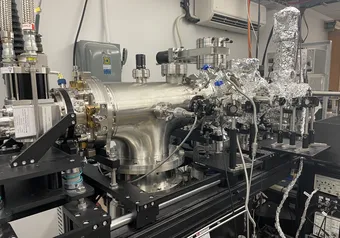The Echo Sustainability Conference was organized by the UBC International Economics Business Association (IEBA) on February 4. The series of interactive workshops discussed various topics such as development, the right to pollute, qualities of a transformational company and fostering sustainable development through technology.
Dr. Brian Copeland, a UBC economics professor, talked about the challenges to sustainability in under-developed and developing countries. One of the questions from the crowd of keen students was about an idea to nationalize polluting industries. “Nationalization is not necessary — strict environmental regulations are,” said Copeland.
Coro Strandberg, a UBC alumnus and president of Strandberg Consulting, talked in detail about the qualities of a transformational company, a firm that strives to improve social and environmental impact, and corporate social responsibility. “Companies cannot be sustainable on their own,” said Strandberg. It must be a joint effort with suppliers, partners and stakeholders. “These companies improve social value. Not only do they become carbon-neutral, but also reduce the legacy harms by becoming net positive in their carbon footprint.”
One of the questions was about quantifying social value. Strandberg said that there needs to be some standards and agreements to quantify social value although there is little current agreement.
As far as transformation in eco-friendly processes within businesses is concerned, “some companies are not thinking long-term,” said Strandberg.
Dr. Werner Antweiler, an associate professor in the Sauder School of Business, talked about the topic of fostering sustainable development through technology. He said, “one solution I’m excited about are microgrids.” Microgrids are small-scale power grids that can operate independently or in conjunction with the main electrical grid.
He mentioned that combining developmental goals with sustainability is a challenging task. However, microgrids can supply electricity in the most isolated areas, as it can use a combination of renewable energies like solar and wind. In turn, this will enable the equipment to operate during the day and night.
Microgrids can be connected to the main grid, which can then provide back-up power if there is erratic electricity supply in some regions. In addition, microgrids are low cost. The only challenge to it is carrying out the process. Hence, entrepreneurs are needed to provide upfront money. This is a good marketplace, especially for social enterprises.
Post informational sessions, the participants were instructed to apply the concepts into a case competition. The competition focused on UBC’s sustainability initiative to resell used furniture to students, schools and external businesses. Teams had to come up with strategies in 90 minutes to handle this operation in the most sustainable manner.
However, one disheartening aspect of this conference was the number of students who showed up even after paying for it.
“This will not deter us from doing this over and over again because it is worth it. If it takes one person to change the world, why not?” said Tudor Schlanger, a second-year undergraduate international economics student and president of IEBA.
Students need to fully accept and take pride in our sustainability efforts. There is a need to take care of tomorrow by acting today and for that, education is key.
First online
Share this article








